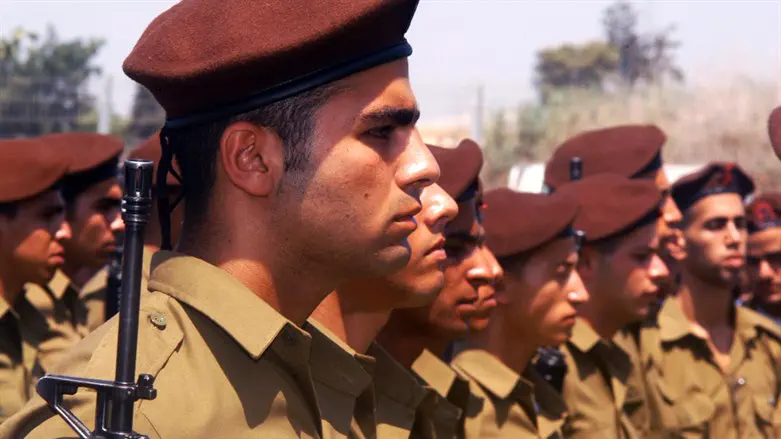
The reasons for favoring cancelling mandatory service were not discussed, nor specifically polled for. However, I would hazard the guess that the greater sentiment for cancellation among younger respondents reflects the pervading influence of materialism and self-centeredness that has run amok in the West and has impacted life in Israel as well.
Given political polls that show the strength of Right-wing political convictions among youth, I do not think this poll is a political proxy. Rather, I see it reflecting a desire to be unshackled from a commitment not chosen by the individual.
However, I would argue that this commitment is an integral part of the cohesiveness of Israeli society. I have long maintained that cancelling the draft in America, and not then replacing it with some requirement of national service, was a terrible mistake.
National service takes young people away from themselves at precisely the age when they are both most self-absorbed and most capable of lending a hand.
The comparison between college life in America and Israel is a stark contrast, largely framed by the requirement of army service here.
Campuses in America are all about self-actualization, which may or may not include binge drinking, drug experimentation, and sexual adventurism. Given the growing trend to instill one-sided political and worldview perspectives in students, the university’s traditional mission to challenge students, to engage them in new ways of looking at things (without force feeding them the required outcome) – all of this seems increasingly quaint and anachronistic.
Israeli university students are not looking for safe spaces nor hunting for micro-aggressions, because they have just experienced a world that was not about themselves. They were required to be part of a group, a team, to support the group and its mission and, most definitely, to sideline their own wants and desires.
They were exposed to people unlike themselves, from backgrounds different from their own. They experienced the breadth and depth of Israeli society precisely because the IDF is the great leveler and melting pot of Israeli society.
We would be doing an immense disservice to our youth and our nation to end the current requirements. In the interest of parity and fairness, I would recommend that we actually close the loopholes of required service.
There are undoubtedly a great many young people who can not and should not serve in the IDF. But to serve in one way shape or form seems to me to be essential. Sherut Leumi, traditionally the province of religious young women, has been, and can be further expanded and enhanced to include any who do not serve in the IDF.
This enlarged cohort for Sherut Leumi should include Hareidi youth, who are more than capable of serving in hospitals and schools, or in their own communities.
The IDF has done brilliant and praiseworthy work to provide autistic and mentally challenged youth the opportunity to serve in units that can either play to their strengths or enable them to contribute subject to their own limitations.
This is a noble and magnificent effort and reflects society at its best. Why not take this mindset and adapt it for those physically or psychologically unable to be in the Army?
Anecdotally, I do hear about the efforts of some young people to avoid serving in the IDF, for the simple reason that they don’t want to. Many are from affluent families, so their refusal strikes me as an arrogant recusing of themselves from their fellow citizens and from their society.
I simply do not believe that there is nothing that such young people could be doing to help their nation. Conversely, allowing young people to do nothing, especially when others are sacrificing sends a terrible message to all concerned.
One of the major reasons that the US has fractured into Red and Blue America is that Blue America has little or no awareness of the need for military duty. Serving in the US armed forces has become the province of the poor, those who need job training and can’t otherwise afford it, or that diminishing cohort of those for whom serving their country is a noble tradition.
The vast majority of Americans have no familiarity, understanding nor empathy for military service, and the vital role it plays in maintaining the freedoms and security that allow college youth to be as self-centered as so many are.
Army service is not perfect and not for everyone. But for the vast majority of Israeli youth who are capable of doing it, such service will be a win/win. It will help them mature, help them to see the world in a more mature way, and will give them an experience that they will rightfully take pride in.
For our citizens, a citizens’ army is a source of pride and great identification. We each and all know young people who are, have or will be serving. They are our children, our nieces and nephews, our friends’ children. The bonds between the soldiers and those they protect are real, close, even intimate.
Let us not cancel, but rather, build from the strength of this situation, to expand mandatory national service to all our youth in order to foster social fairness, build cohesion and identification with our Nation.
Douglas Altabef is the Chairman of the Board of Im Tirtzu, Israel’s largest grassroots Zionist organization, and a Director of the Israel Independence Fund. He can be reached at dougaltabef@gmail.com.